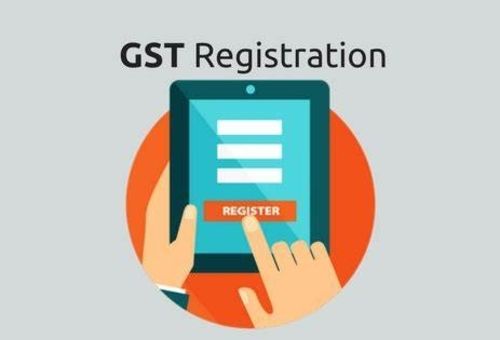Singapore GST Registration: What You Need to Know Before Applying
Singapore GST Registration: What You Need to Know Before Applying
Blog Article
Making Best Use Of Tax Obligation Performance: Professional Tips on Navigating the GST Enrollment Maze for Little Businesses
Browsing the complex landscape of Product and Services Tax Obligation (GST) enrollment can be a labyrinthine job for small organizations aiming to optimize their tax performance. Understanding the qualification criteria, meticulous documents needs, tactical timing considerations, and skilled enrollment process tips can substantially impact a business's economic standing. Conformity with GST laws is paramount, and sticking to ideal practices can streamline procedures and stop possible challenges. In this discussion, we will certainly explore expert insights and workable guidance that can empower small companies to navigate the GST registration puzzle successfully and optimize their tax efficiency.
Qualification Standards
Eligibility requirements for Small Company GST Enrollment incorporate details criteria that businesses must meet to comply with tax obligation laws. To certify for GST enrollment, an organization has to have a yearly turn over going beyond the limit set by the tax obligation authorities, which varies by country.

Documentation Demands
To effectively complete the process of GST registration, local business have to ensure they have all necessary documentation in order. The called for paperwork usually includes evidence of company enrollment or identification, unification and address proofs of the organization owner, photographs, checking account details, and evidence of the principal workplace. In addition, organizations need to provide information of their business tasks, including the items or services provided. It is vital to guarantee that all documents are precise, up to day, and in the specified layout to avoid hold-ups or beings rejected throughout the registration procedure.
Keeping all necessary documents organized and readily obtainable can improve the enrollment procedure and help organizations conform with the requirements effectively. Careful interest to detail and adherence to the documents standards are crucial for a successful GST enrollment process for little companies.
Timing Factors To Consider
Taking into consideration the vital documentation demands have actually been carefully addressed, the next critical element for small companies embarking on the GST enrollment process is the calculated management of timing considerations. Timing plays a crucial function in GST enrollment, affecting not only conformity but additionally financial aspects of business. Local business require to meticulously plan the timing of their GST registration to make best use of advantages and minimize potential risks.

Additionally, companies must line up the timing of their GST registration with their operational readiness. Sufficient preparation, such as updating accounting systems and training team, is vital to seamlessly integrate GST requirements into daily operations. By purposefully taking care of timing factors to consider, small companies can browse the GST registration procedure efficiently and optimize their tax performance.
Registration Refine Tips
Effectively navigating the GST registration procedure calls for tiny businesses to apply proactive and calculated enrollment process pointers. This includes organization enrollment papers, proof of address, financial institution declarations, and recognition proofs of the business proprietors.
In addition, understanding the thresholds and requirements for GST enrollment based on the certain state or territory where the company runs is vital. Some states have various turn over thresholds that set off required registration, so being notified regarding these limits can aid businesses prepare in advance.
Another important idea is to take into consideration looking for professional assistance from accountants or tax experts that concentrate on GST enrollment. Their expertise can streamline the process, decrease errors, and guarantee compliance with all policies.
Compliance Best Practices
Little services have to focus on compliance to stay clear of penalties and preserve an excellent standing with tax authorities. Little organization owners ought to on a regular basis review government standards and look for professional guidance if required to guarantee they are meeting all demands. By including these compliance best methods right into their procedures, small services can browse the complexities of you can find out more GST registration with confidence and performance.
Conclusion
Finally, small companies can navigate the GST registration labyrinth by guaranteeing they meet qualification standards, gather needed documents, consider timing ramifications, adhere to registration process suggestions, and comply with compliance finest practices. By taking full advantage of tax obligation performance via correct GST enrollment, services can boost their monetary administration and operations.
Navigating the intricate landscape of Goods and Services Tax Obligation (GST) enrollment can be a labyrinthine job for little services aiming to optimize their tax efficiency.Qualification demands for Small Service GST Registration encompass specific standards that organizations you could try this out need to satisfy to comply with tax obligation laws. The needed paperwork usually includes evidence of service registration or address, consolidation and identity proofs of the service proprietor, photos, bank account details, and evidence of the major area of organization. Furthermore, services need to offer details of their company activities, including the solutions or items provided.Efficiently browsing the GST enrollment process requires tiny companies to implement strategic and positive registration procedure suggestions.
Report this page